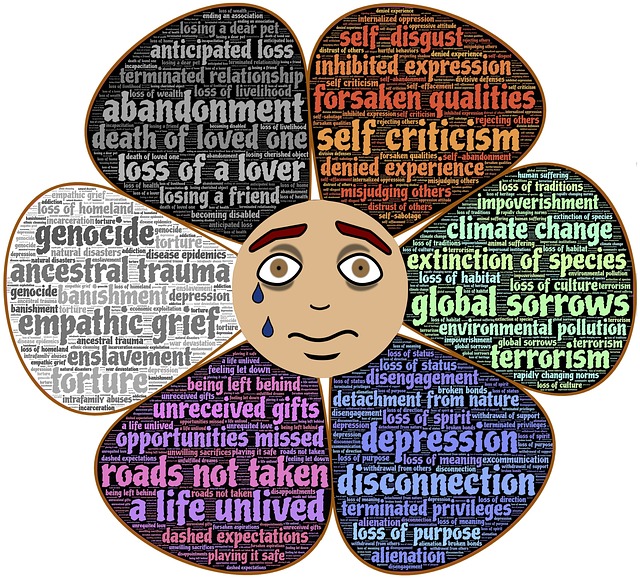Healing from trauma in a sustainable way requires three main conditions, (1) understanding the complexity of trauma, (2) adopting a holistic healing perspective and (3) providing social support. Unfortunately, as trauma expert Dr. Jeffrey Rutstein points out, when we observe poor behaviours on the part of people who have experienced trauma, we assume they are thoughtlessness, ungrateful or carelessness and fail to see the person involved as a “profoundly wounded person”. He maintains that people who have been traumatised need “tenderness or caring or empathy”(especially socially ostracized drug addicts). Dr. Gabor Maté often adopts a process of “compassionate inquiry” which encapsulates these understanding and empathetic attitudes. Jeffrey and Gabor are two of the presenters in The Healing Trauma Program provided by Sounds True.
Understanding the complexity of trauma
Dr. Elena Villanueva, drawing on neuroscience research, her work with hundreds of trauma sufferers and her own deep and prolonged trauma experience, asserts that when we are unable to process traumatic or heightened emotional experiences, “they get stuck in our cells, tissues and organs” and lead to debilitating conditions in our bodies. Elena herself had a history of trauma extending from early childhood through adolescence to adulthood. She was raped at ages 15 and 38, frequently isolated, kidnapped by her separated mother, constantly on the move in different houses and schools, and experienced financial stress and divorce. Her resultant symptoms and conditions included loss of memory, panic attacks, inability to speak, and high blood pressure. She was depressed and extremely anxious resulting in suicide attempts on three occasions.
Elena highlights the pervasive influence of trauma in terms of its distortion of our bioenergetic field. She spoke of her own experience of being dissociated from her body until three years ago. Elena found it exhilarating to “pop back into her body” and once again feel her muscles, the sun on her body and face and the in-out flow of her breath.
Jeffrey, a clinical psychologist, maintains that people experiencing trauma lose their sense of agency over their own body and their life – they feel at the mercy of their emotions, other people and their external environment. Gabor states that emotional deregulation, that he himself still experiences, occurs when he recalls traumatic memories and related emotions. He becomes another person who is perceived as “frightening” and “scary” – ironically, at a time when he feels “the weakest internally”. Trauma-induced emotions take over and he loses both a sense of agency and emotional regulation. Gabor argues that underpinning inappropriate behaviour is shame because “shame is the most dominant impact of trauma” and this leads people to try to deal with this unbearable burden by compensating through their divergent behaviour. The related pain and unfulfilled needs often lead to addiction fuelled by negative self-talk.
The negative self-talk associated with trauma distorts our thoughts, emotions and biology as a result of the hijacking of our amygdala. The lower level of our brain takes over control of how we respond to triggers – leading to fight/flight/freeze responses. In the book, What Happened to You, Dr. Bruce D. Perry makes the point that the body stores emotional memories that can be activated by a song, the sound of a voice, the smell of food, or any other sensory experience or precipitating event. He explains that these strong associations are “stored in neural networks” and even when the specific experience cannot be recalled, the negative association can impact any aspect of our life, including our capacity to achieve intimacy.
Adopting a holistic healing perspective
If we understand the complexity of trauma, we can readily appreciate that a single modality will be inadequate to help people heal from trauma in a sustainable way. For example, if the symptoms of physical ailments are removed but negative self-talk persists, recovery will not be sustained and traumatic memory will find another way to impact our physiology and bioenergetic field. What is required is a holistic healing perspective and this realisation underpins the approach adopted by Dr. Villanueva in her Modern Holistic Health orientation and the recovery solutions incorporated in her Mind/Body/Energy Healing Program.
Numerous modalities have emerged for healing from trauma and aiding trauma recovery. The following are some of the modalities that have been adopted around the world, often in different combinations:
- Vibrational Sound Healing: focus – good vibrations
- Somatic meditation: focus – breath
- Bioenergetic Assessment: focus – energy system
- Body Scan: focus – bodily awareness
- Compassionate Inquiry: focus – unconscious self-stories
- Resonance Repatterning: focus – positive energy and motivation
- Mantra Meditations: focus – stillness of the mind and calmness
- EFT Tapping: focus – challenging emotions
- Environmental Scan and lab tests: focus – toxins (including mold).
Trauma is complex and its impacts are far-reaching and vary with each individual. While individual variations occur in the pervasiveness, depth and intensity of trauma impacts, group activity (supported by individualised testing) can help people progress in terms of diagnosis and healing.
Providing social support
Social support has been shown to develop resilience in individuals in post-traumatic recovery. This perceived support extends not only to their own social networks and frequency of supportive interactions but also to peer support, coaching and technical guidance through counselling and provision of resources. Dr. V’s Mind/Body/Energy Healing Program mentioned above employs multiple healing modalities in concert with group-based activities such as monthly healing sessions with qualified coaches supported by resources such as breath meditations, the 5-part Trauma Masterclass video recordings & transcripts and monthly Bioenergetic Tests.
Social support helps people to appreciate that they are not alone in experiencing trauma and its multifaceted impacts, provides encouragement to persist with the healing process, engenders vicarious learning and offers positive reinforcement of the possibility of recovery. Social support generates a sense of belonging and connectedness so essential for positive mental health.
The GROW organisation is an example of mutual social support for the process of recovery from all forms of mental ill-health. The peer to peer support process enables participants (Growers) to overcome mental ill-health issues and achieve personal development. eGrow groups have emerged as an alternative to face-to-face meetings. Testimonials of recovery by participants, in both face-to-face and online programs, provide the impetus for the sustainability of recovery for other participants.
Reflection
It is difficult to understand what impact trauma has had on our mind, body and emotions. Trauma practitioners through their various modalities and group support help us gain insight into how trauma is affecting us, even late in life. Mindfulness is consistently advocated by trauma experts as a way to help deal with the ongoing effects of trauma. As we grow in mindfulness through meditations and other mindfulness practices including spending time in nature, we can gain self-awareness, build resilience, and access calmness and composure in difficult situations or when triggered by a sensation or an event.
_________________________________
Image by enrico bernardis from Pixabay
By Ron Passfield – Copyright (Creative Commons license, Attribution–Non Commercial–No Derivatives)
Disclosure: If you purchase a product through this site, I may earn a commission which will help to pay for the site, the associated Meetup group, and the resources to support the blog.

